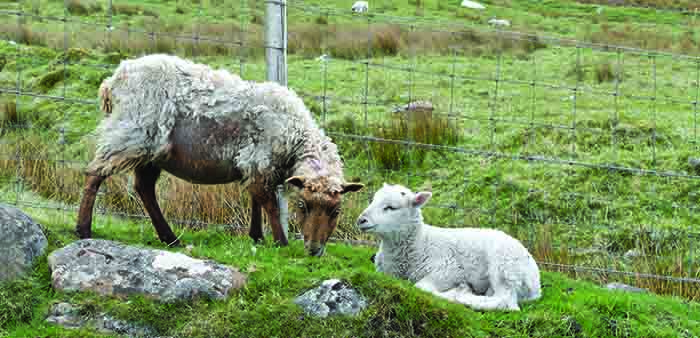A new initiative has been launched that uses serological testing to improve the control of sheep scab within hot spot areas in England.
A group of experts have recently been successful in a bid for funding from the Department for Environment, Food & Rural Affairs, via the Rural Development Programme for England (RDPE), to demonstrate the effectiveness of community-led approaches to improve the control of sheep scab in three hot spot areas in England.
The project is led by Dr Stewart Burgess at the Moredun Research Institute, Lesley Stubbings at LSSC Ltd and Professor Richard Wall at Bristol University, with partners National Sheep Association (NSA), ADAS, the Farmer Network and Flock Health Ltd.
It will run over two years, offering participating farmers a unique combination of on-farm advice, best practice training, free blood testing using the sheep scab ELISA test developed by Moredun, and the payment of costs of visits by a local veterinary surgeon.
This co-ordinated approach will be used to demonstrate the control of sheep scab in three focus areas of England where scab currently presents a significant problem: The North West, Hereford and Shropshire and the South West.
Sheep scab, a highly infectious disease caused by the parasitic mite Psoroptes ovis, costs the UK sheep industry an estimated £70-200 million every year and has remained a significant problem for the health, welfare and productivity of sheep since the 1950s when it was re-introduced via imported sheep.
As populations of sheep scab mites in the UK now have proven resistance to one of the main treatment groups, injectable macrocyclic lactones (MLs), it is imperative that as an industry, we make a concerted effort to bring this disease under control.
The project will engage farmers who are willing to work with their neighbours and their vets in testing, sharing results and undertaking the practical elements required to bring sheep scab under control. Importantly, the work will be co-ordinated by local industry groups already working with sheep farmers in each focus area, including the Farmer Network in the North West, ADAS in Hereford and Shropshire and NSA in the South West, which will increase participation.
Farm vets will be highly involved with their clients within the project and will be working closely with the regional coordinators within the clusters.
Dr Stewart Burgess, project lead from Moredun, said: “Sheep scab is a real scourge for the sheep industry in the UK and by using new tools like the sheep scab blood test, this exciting new initiative gives us the opportunity to get ahead of the curve in terms of scab control, setting a new benchmark for how we deal with the disease in the future”.
Prof Richard Wall, from the University of Bristol, said: “After 50 years of attempts to manage this disease, approaches used to date have clearly failed and it is time, to apply some fresh thinking based on focused management in known scab hotspots”.
Independent sheep consultant Lesley Stubbings said: “It is fantastic to see this project come to fruition, having been first proposed to Defra by the SCOPS group in 2019. I am really looking forward to working with such an enthusiastic team.”
Dr Christine Middlemiss the UK’s Chief Veterinary Officer, added: “I welcome the RDPE scab project led by the Moredun Research Institute, LSSC and Bristol University to improve the control of sheep scab within hot spot areas in England.
“Their unique combination of on-farm advice, training and blood testing will support sheep farmers in their fight against a disease that costs the industry an estimated £70-200 million every year and remains a significant problem for sheep health and welfare. This is an exciting community-led approach to sheep scab control and I am looking forward to seeing this exciting project come to fruition.”


